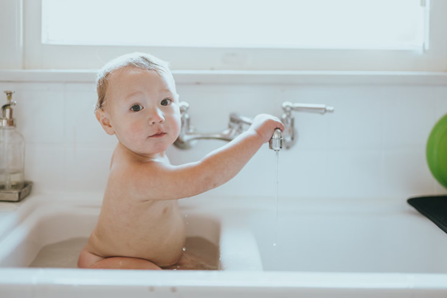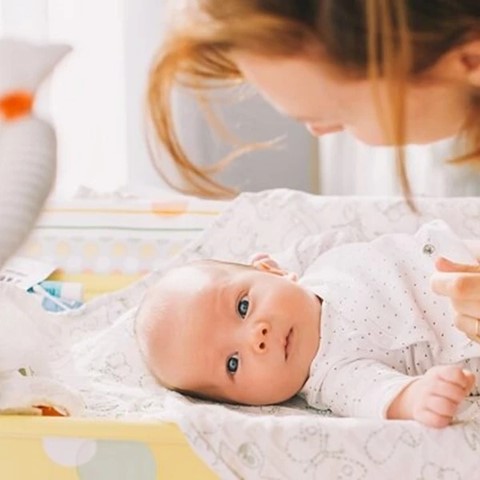Baby Care and Hygiene
Baby Care and Hygiene: Things to Know
Welcoming a newborn into the world is a joyous and exciting moment, accompanied by responsibilities that may seem overwhelming at times. Among these, ensuring proper baby hygiene and care is a vital aspect that deserves special attention.
From those tiny fingers to the adorable little toes, maintaining a pristine environment for your baby not only keeps them hygienic but also sets the foundation for a lifetime of good habits.
Nurturing Little Nails
The little nails on your bundle of joy will be one of the first things you notice. Though it may appear to be harmless, but the rough edges of their nails can create scratches on their bodies. At the same time, the large nails enable dirt to accumulate, and they put their hands in their mouths very often, increasing the possibilities of infection.
As a result, keeping the nails tidy and clean is critical. However, while nurturing the small nails, use a stainless-steel clipper designed for babies and gently pull the skin away from the nail before cutting. It is preferable to cut their nails while they sleep or after a bath because the bathwater softens their nails.
Attaining Sparkling Smiles through Proper Brushing
Baby's oral health is also critical for keeping them healthy and germ-free. After feedings, gently clean their gums with a soft cloth, and as their first teeth develop, begin with a soft bristle finger brush made of non-toxic materials, such as those designed specifically for babies. Since they only drink milk, they may have deposits on their tongue that can harbour bacteria and cause an odour. Cleaning their tongue with a soft, clean towel is also necessary.
Sterilisation of Baby’s Items
Washing baby's feeding essentials is not enough; sterilising them is also necessary to and ensure baby's safety. Their feeding bottles, spoons, bowls, and other equipment that comes into touch with your baby's mouth or food should be sterilised on a regular basis with boiling water or a non-toxic sterilisation solution.
Laundry Love
The skin of a baby is delicate and sensitive, and their immune system is still developing. As a result, selecting laundry products is critical. Any harsh detergent used to wash their clothes may harm their skin. For their clothes, blankets, and bedding, use mild hypoallergenic detergents.
After washing the clothes, rinse them several times with clean water and air dry them under sunlight. Wash their clothes on a regular basis, even if they don’t appear dirty; this helps to eliminate dirt, sweat, and other allergens that could irritate your baby’s skin.
Baby Care for Healthy Bath Time
Giving your small wiggling infant a bath might be a time-consuming process. Take lukewarm water and a mild doctor’s recommended choice of soap, then carefully apply water by hand over their entire body, being careful not to let water enter their ears or mouth. Gently rinse their skin, paying special attention to wrinkles and folds, and be very cautious around the tender regions on their heads.
If the umbilical cord is still present, you should not bathe them; instead, give them a sponge bath with soft towels. After bathing, gently dry their hair and complete body with a soft towel.

Genital Care for Baby Hygiene
Genital care can help to avoid bacteria and reduce the likelihood of urinary tract infections. During diaper changes or bathing, grab a fresh baby and gently clean the genital area of the baby boy or girl. Only the outside of your baby's foreskin in the genital area should be cleaned. Always remember that genital baby care necessitates delicate handling.
The Diaper Duty
Diaper changing is an essential aspect of daily life with a baby, and it needs to be done frequently. Since their skin is particularly delicate, leaving traces of poo or urine for an extended period might cause illnesses and other skin infections. So, after each use, change the diaper and apply soft wipes from front to back to ensure that there are no signs of poo lingering. Fan the diaper area well before applying a new diaper.
Caring for the Umbilical Cord
The umbilical cord takes at least one to two weeks to break off, therefore bathing should be avoided until then. You should not use water on it; instead, wipe the tummy area with warm water and allow the cord to dry and clean itself.
Furthermore, avoid tucking the diaper into it, as this might cause the tarp to become moist and stinky; instead, allow it to dry naturally. If you notice anything suspicious, you should call your doctor right once.
Disinfecting and Washing Soft Toys
Baby toys are more than just playthings; they also put them in their mouth, making them potential germ vectors. It is critical to thoroughly disinfect and wash baby’s soft toys in hot water according to the manufacturer's recommendations to make them clean for baby’s use.
Cleaning Nose, Ear, and Eyes
Giving babies a bath isn’t enough; we also need to clean their small and adorable nose, ears, and eyes. You can do this after bathing them because when their skin is wet, it is simpler to remove dirt from all these spots.
Take a soft moist cloth and gently wipe the outside of their ear only; never insert anything into the ear canal or into their eyes. To remove mucus from the nose you can use a nasal syringe.

Disinfecting Your Home
Your child may be too young to go out of the house, but they move all over the place inside. As a result, keeping their surroundings clean and germ-free is critical. Always use a floor cleaner to keep the floor germ-free, as newborns have a habit of putting their hands in their mouths, and a dirty home harbors bacteria which may make your baby fall sick frequently.
At the same time, don't put anything down because your kid might get it and put it in their mouth. The room where your infant spends the most of his or her time, in particular, should be tidy and have access to fresh air and sunlight.
Care for Yourself
This is one of the most crucial things to remember when dealing with the babies. If you are already infected with bacterium, your baby may become ill quickly. Before contacting your baby or baby product, clean yourself and your hands with a sterilised solution or hand wash, and do the same for guests or other family members before touching the infant.
If you are a mother or carer of a baby, you must keep your clothes and body always clean, or else your little one frequently.
Note: Also, keep in mind that if you notice anything out of the ordinary or something that makes your baby uncomfortable, you should seek the advice of a doctor.
In conclusion, baby care and excellent hygiene are essential aspects of parenting that require special attention and care. However, if you simply follow these practices and are conscious of their health, you may provide your baby with a hygienic environment not only for the short term but also for the long term. Your good practices and awareness master the art of maintaining a clean and nurturing environment for the little ones during their youth, you're contributing to their welfare.
